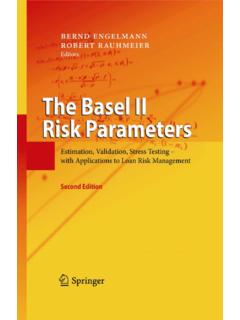Transcription of EHN Sample Interview Questions 3
1 Sample Interview Questions . Interviews and Interview styles vary greatly, so the best way to prepare is to practice answering a broad range of Questions . For other great Interview strategies, see our Successful Interviewing Strategies , available at Overall, when answering Interview Questions , emphasize the positive and minimize the negative, and select examples of skills and abilities that fit the job requirements. Questions About Your Reasons for Changing Jobs: Left voluntarily? Keep it positive, and focus on the future. Don't say anything relating to not getting along with co-workers or managers, or not being paid enough. Acceptable reasons for wanting to leave a job include: o the opportunity to broaden your skill set o looking for increased responsibilities o wanting career growth o seeking new challenges o the opportunity to use skills you've just acquired (from getting a degree or certification).
2 O wanting less or more travel (so long as this doesn't conflict with the current job requirements). o leaving the workforce to have children o needing to relocate for family health reasons o because a contract ended Laid off? Keep it short and end on a positive note. Use the phrase the position was eliminated . Acceptable answers include: o I survived a number of downsizings and reorganizations, but not this last one. I really enjoyed working with the company as long as I did. o During a reorganization a new manager brought in members of their old team. That was fair, but I'm already finding better opportunities elsewhere. o My function was outsourced.
3 O My department was eliminated. Fired? Again, stay brief, emphasize the positive and then move on. Avoid the words fired and terminated , and use released instead. Acceptable answers include: o My skills weren't a good fit, but I think they'd be a good fit here (with examples). o I took the job during an economic downturn when the job market was very tight, and it was a mistake I won't repeat. It wasn't a good fit for either of us. o My manager and I agreed that it was time for me to move on to a position that would be a better fit. o I now realize I should have done some things differently, but I've learned a lot and am wiser now. I'd like the opportunity to prove that to you.
4 O Some personal issues, which have been resolved, detracted from my ability to do my job as well as I would have liked. I'm really looking forward to getting back to work. o I have always gotten along very well with my managers, but in this case we just didn't get on well (don't elaborate). o I was very successful in previous positions and got along well with managers and co-workers, but I. was released before I had a chance to prove myself. Unemployed a long time? Explain that you were looking for the right opportunity, where you could really make a contribution. Mention any professional pursuits during the interim (consulting, publications, certifications).
5 Questions About Your Employment History: Tell me about your employment history. Be ready with the names of companies, positions and descriptions, and dates of employment. What were your responsibilities? As much as possible, try to connect previous responsibilities with those of the job for which you are interviewing. What were your expectations for your last job, and were they met? If your expectations weren't met, focus on issues with the job, not with your managers, co-workers or the company. What is your compensation history? Provide figures on starting and ending salaries and any bonuses in each position. Don't misrepresent this, as it can and likely will be verified.
6 Describe a major challenge and how you handled it? Choose a situation where you displayed the skills/talents required in the job description for which you're applying, then describe how you contributed to solving the problem, and describe the outcome. Which did you find most and least rewarding about your previous position? Select an example of something you enjoyed that is required in the new position (ex. I really enjoyed the challenge of interacting with a large cross-functional team). For least rewarding , use an example that is not required in the new position, and turn it into something positive, and related to the position for which you are interviewing (ex.)
7 I didn't find some of the administrative work interesting, but I saw that it was necessary and became very good at doing it quickly and efficiently). What was your biggest accomplishment and failure in your previous position? Describe something that is similar to something required for the new position (ex. I built a state-of-the-art system from scratch that tracked operational risk across all bank branches). For the failure, no one's perfect, so think of something that was minor, or for which you were able to come up with a creative solution anyway (ex. After we implemented the valuation model, we realized we hadn't adjusted properly for convexity, so we had to re-design it to do so, then found out we were one of the only banks to do so.
8 What are your current supervisor's strengths and weaknesses? Accentuate the positive and minimize the negative. Interviewers don't like to hear that candidates don't like their managers, because they know that could be them next time. Questions About You: Describe a typical work week. Show with examples how organized and efficient you are, and that you know how to prioritize tasks and responsibilities. If the position for which you are applying is managerial, discuss how you delegate tasks as well. How many hours do you usually work? Answer appropriately, and stress that you always get your work done and are prepared to do whatever it takes to do so.
9 Remember that working long hours is not always a sign of dedication, but could be perceived as inefficiency or lack of work-life balance. At what pace would you say you work? Answer appropriately, and link your pace to the job requirements. Not all jobs are best done quickly, though everything is best done efficiently. What motivates you? Answer honestly, but tie your response to something you expect to be able to receive in the prospective position (ex. for a sales person, compensation is a reasonable motivation;. for a quant, figuring out mathematical puzzles might be more reasonable, and the employer might be put off if the answer from a quant was money.)
10 How do you handle stress? This is important, since most jobs are at least somewhat stressful. Some examples of positive ways to deal with stress are: make sure you have the tools you need to manage and minimize stress, avoid reacting to stress and instead react to the situation, manage time efficiently to minimize stress, distinguish between positive pressure which is motivating and challenging and negative stress which should be minimized, reduce the effects of stress by working out or talking with friends, discuss with team mates and managers optimal ways for handling stressful situations. What is the hardest decision you have had to make? This is a behavioral question , with the presumption that how you've acted in the past predicts how you'll act in the future.

